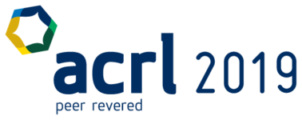Session Description:
Drawing from the disciplines of psychology and social work, this panel discusses the applications of relational-cultural theory (RCT) to librarianship. Adopting RCT in librarianship provides a framework by which library workers can center the relational activity that academic libraries collaborative service and labor models inherently depend upon. In doing so, we appropriately emphasize, practice, and value the affective nature of our work. Participants will learn how to cultivate a more feminist, egalitarian practice of librarianship that centers relationship and connection and helps foster cultural humility in order to develop meaningful relationships with diverse communities and colleagues.
